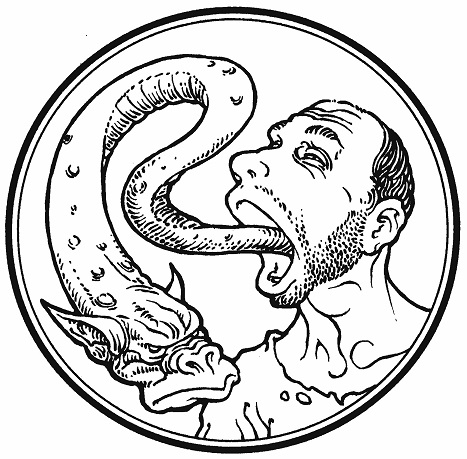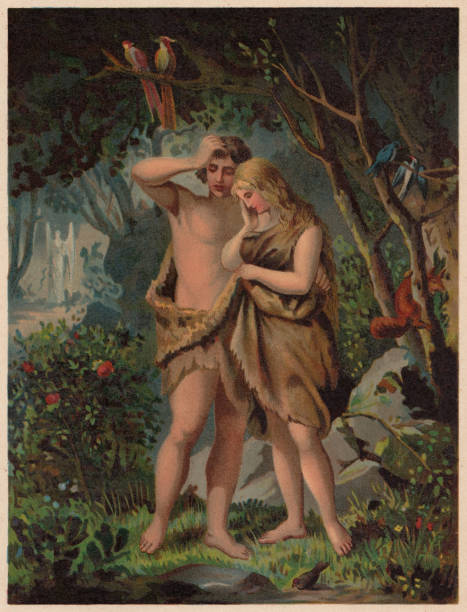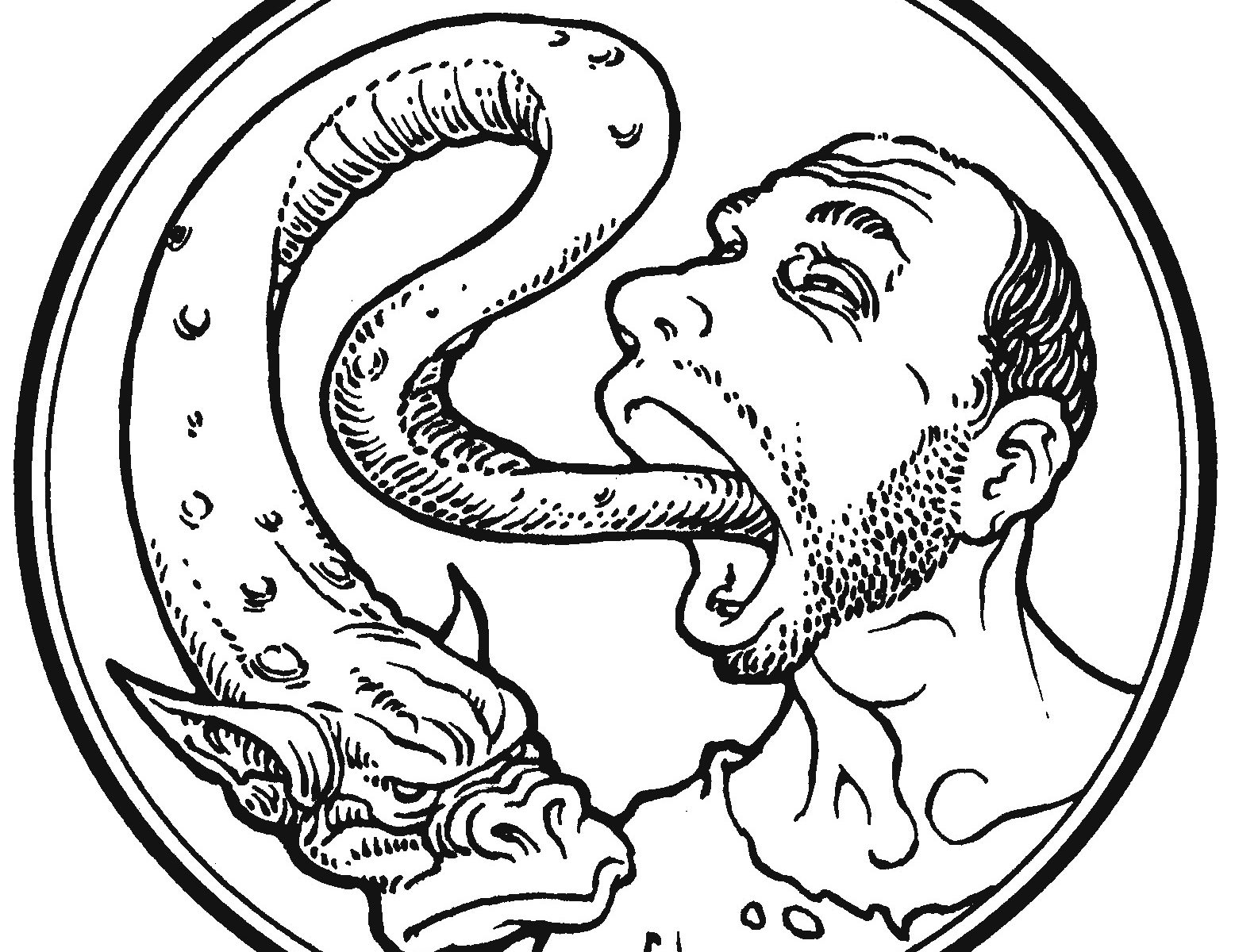Readings: Exodus 8:16-24 | Ephesians 5:1-9 | Luke 11:14-28
Text: Luke 11:14-28

This time of year, many of us are looking at spring cleaning. As more light comes in the window, the grime on the windows and the dust in the air is harder to turn a blind eye to.
The first part of spring cleaning involves moving things out of the way to uncover what you haven’t been dealing with: dead leaves, fur, dust, long lost items that fell off behind the table. There’s an excitement about making visible progress.
As the job wears on, you may reach a point where you say, I never want to have to do this ever again! Let’s just do a massive purge! If we just didn’t amass all the stuff, it wouldn’t be so much trouble. Your stories of cleaning may vary…or it might be an unpleasant reminder of how you haven’t or can’t seem to get to it.
Of course, our Lord is not concerned whether our houses are tidy or messy, just as it doesn’t put Him off if the clothes you’re wearing today are up to cultural snuff. He is concerned with saving us from things far more insidious than dust mites.
If it is by the finger of God that I cast out demons, then the kingdom of God has come upon you. 21 When a strong man, fully armed, guards his own palace, his goods are safe; 22 but when one stronger than he attacks him and overcomes him, he takes away his armor in which he trusted and divides his spoil. (Luke 11:20-22)
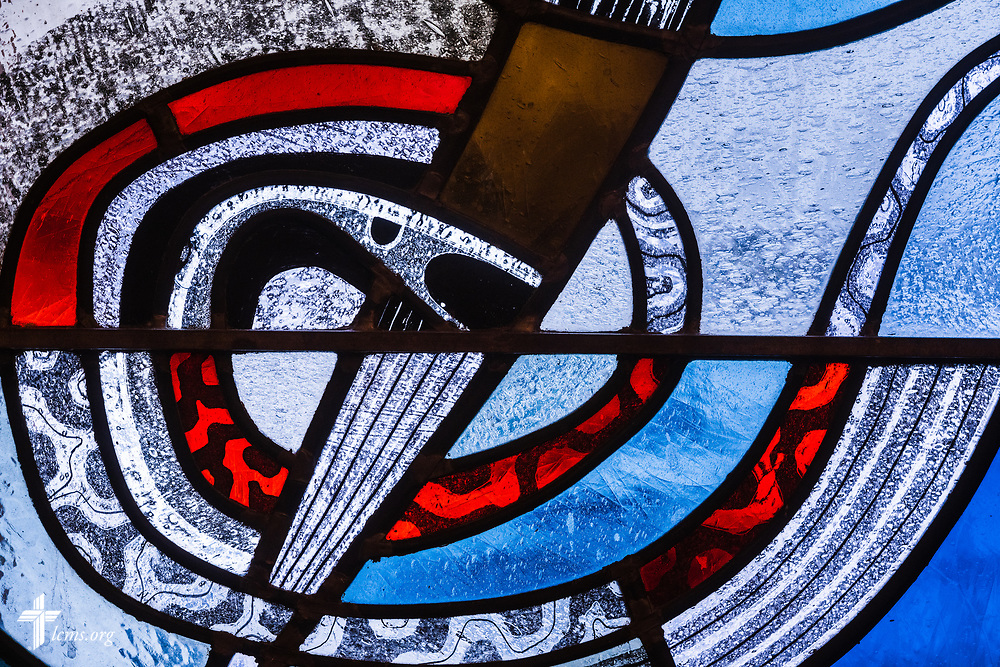
Satan is no friend to people. From the beginning, he has shown what sort of deceitful “friend” he is. Those who today claim to be Satanists, and who dabble in taboo practices like tarot and Ouija boards are embracing the sweet poison of the lies that Satan dispenses. C.S. Lewis was wise to depict Satan as a woman in white who invites the unsuspecting in with Turkish delight (The Lion, the Witch, and the Wardrobe).
The difference between the devil and dust mites is that the clutter simply accumulates due to inattention, but this Satanic strong man and his demons are an active danger: “Your adversary the devil prowls around like a roaring lion, seeking someone to devour.” (1 Peter 5:8) The dust and daddy longlegs do not target you as Satan does. His aim is your eternal destruction with him. He would like to see you and your family, as well as every human being ripped away from God eternally because of spiritual death and proud rebellion (like him).
~ Demonic Possession ~
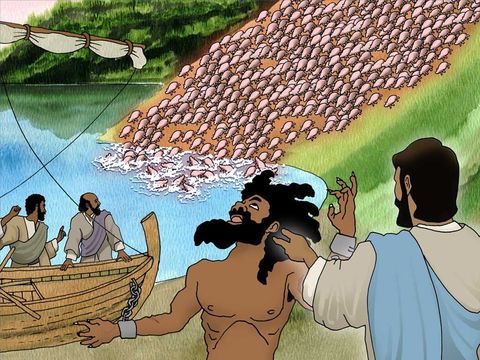
In the past, overt displays of violence and a show of strength to make people cower and avoid the demoniac. [Mark 5:1-20]
Today, it manifests itself in what Jesus says today: “Whoever is not with me is against me, and whoever does not gather [together, that is, synagogue] with me scatters.”
What demonic lies have won over your friends, your children, and grandchildren that keep them from being gathered with the faithful?
23 Whoever is not with me is against me, and whoever does not gather with me scatters. Whoever is not with Christ is actually against Him. The lip service people pay to being a Christian (that is, one who follows Christ) is proved to be false by their way of life, and it will not escape the Judgment Day. Whoever does not synagogue with Him scatters. What this means is that the chief work of Satan we see today, and even more so after the COVID revolution, is when the victims of Satan are kept from the congregation.
The satanic way is to put the proverbial rock in your shoe: be it what you think of the other people at church, some supposed failing in the music or the manner in which the service is conducted, and perhaps Satan will even tempt your spouse so that they incite you and drive you away.
23 Whoever is not with me is against me, and whoever does not gather with me scatters. For the one who has been rescued by the Lord, there is comfort and safety in the congregation. It’s not merely a matter of “church attendance,” but of the ground upon which our life is built: beginning with Baptism.
~ Living in Baptism ~

We have to clean multiple times. It’s never truly complete until we move out of a house and lock the door for the last time. Then we can set down our mop. What are the sort of things we only have to do once? Get a social security card? Usually just take the driver’s test once.
We do confess in the Nicene Creed, “I believe in…one Baptism for the remission of sins.” But whenever we treat it like a past event as if it were a lifetime membership, a ticket to heaven, that is a lie out of hell. That is the work of Satan and his demons in our day.
24 “When the unclean spirit has gone out of a person, it passes through waterless places seeking rest, and finding none it says, ‘I will return to my house from which I came.’ 25 And when it comes, it finds the house swept and put in order. 26 Then it goes and brings seven other spirits more evil than itself, and they enter and dwell there. And the last state of that person is worse than the first.”
In Holy Baptism, it begins with an exorcism. Not the Hollywood pea-soup kind, but a warning against the devil and all his host: This one being baptized now belongs to a new Lord and Master.
“Do you renounce the devil? Do you renounce all his works? Do you renounce all his ways?” (Rite of Holy Baptism, LSB 270)
- Who is the devil, but a fallen angel who masquerades as an angel of God [2 Corinthians 11:14].
- What are his works? He is a liar and a murderer from the beginning [John 8:44]. He twists God’s Word into exactly what He wants it to say, seeking spiritual and eternal death of men and women.
- What are his ways? To appear as a pious friend, who tells you that you are right, and “the church” or people in it are wrong. [1 John 2:18-20]
The alternative rite for Holy Baptism, authored by Martin Luther puts it very frankly, “Depart, O unclean spirit, and make room for the Holy Spirit!” And in our dull awareness of the spiritual realm, we think it can’t be all that bad away from Christ. I mean, they’re not shrieking and cursing Christ vocally. But that is not where the unclean spirits show themselves today in America.
They want to keep the baptized away from Baptism. There they lurk, in waterless places. That is, places away from the waters of Baptism. Listen to these wise words from the church father, Tertullian, speaking to us from the 3rd century:

“Happy is our sacrament of water, in that, by washing away the sins of our early blindness, we are set free and admitted into eternal life! A treatise on this matter will not be superfluous; instructing not only such as are just becoming formed [in the faith], but them who, content with having simply believed, without full examination of the grounds of the traditions, carry (in mind), through ignorance, an untried though probable faith. The consequence is, that a viper of the Cainite heresy, lately conversant in this quarter, has carried away a great number with her most venomous doctrine, making it her first aim to destroy baptism. Which is quite in accordance with nature; for vipers and asps and basilisks themselves generally do affect arid and waterless places. But we, little fishes, after the example of our ΙΧΘΥΣ [ichthus, an acronym for ‘Jesus Christ, God’s Son, Savior’], Jesus Christ, are born in water, nor have we safety in any other way than by permanently abiding in water; so that most monstrous creature, who had no right to teach even sound doctrine, knew full well how to kill the little fishes, by taking them away from the water!” (Tertullian, On Baptism, 1)
Beloved little fishes at Bethlehem, Beelzebul is no friend and inert danger that we can steer clear of by our own wits. The Stronger Man, the Lord Jesus, has cast him out and away from you. He has saved you in the waters of Holy Baptism. Live in it every day. Begin every day in the sacred Name He places on you.
You have been cleaned out of the devil’s works and ways, in order to be filled with Him and the Word He speaks. Blessed are those who hear the Word of God and keep it. By the Word which speaks to each of us in our lives—as husbands and wives, parents and children, leaders and followers, rulers and citizens—He shines the bright truth that we may recognize and flee from the craft of our enemy.
11 Finally, brothers, rejoice. Aim for restoration, comfort one another, agree with one another, live in peace; and the God of love and peace will be with you…14 The grace of the Lord Jesus Christ and the love of God and the fellowship of the Holy Spirit be with you all. (2 Corinthians 13:11-14)
Amen.



